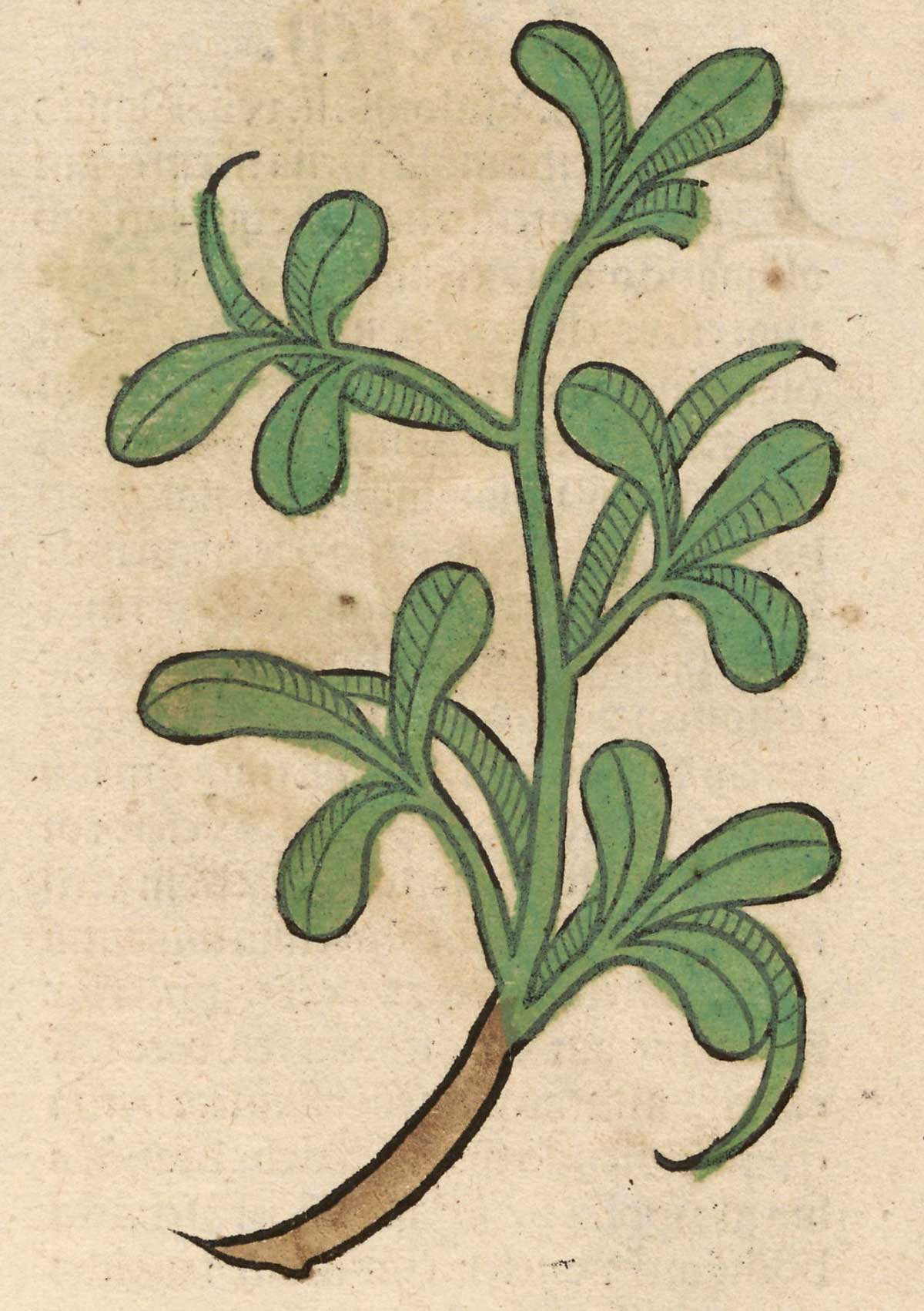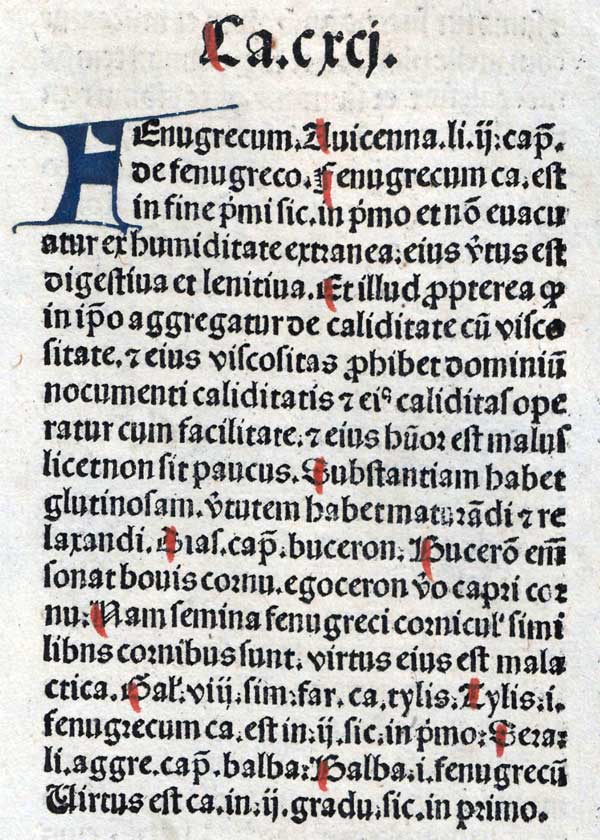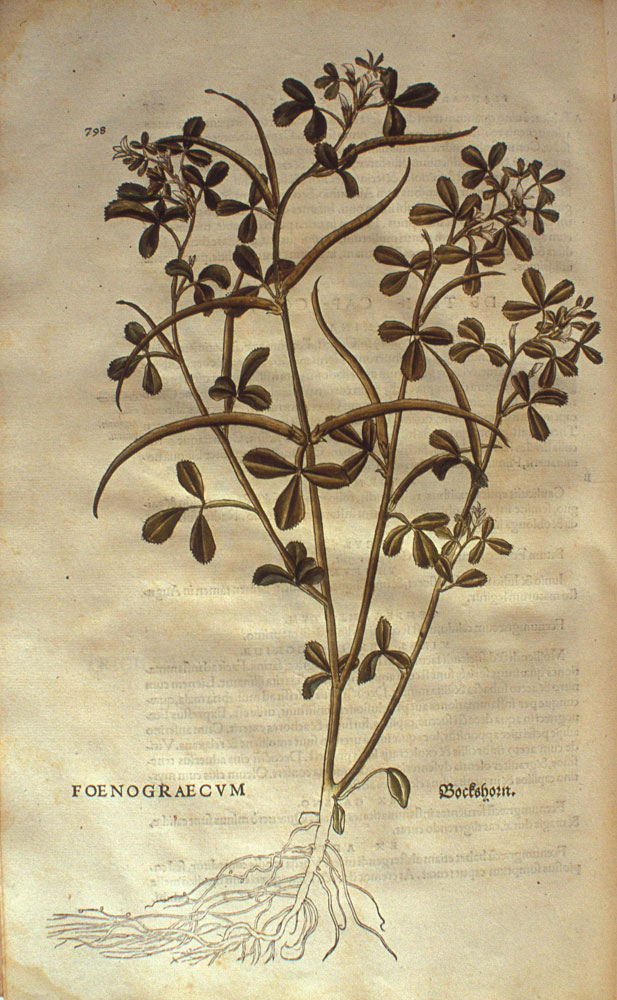Among the plants that have retained the names of the regions from which they were formerly transported.
Notes
Fenugrecum
Fenugrecum (text)
Trigonella fœnum græcum
Foenu Greek
Foenum Graecum. Pliny xxiv. 19, § 120.
fœnu grec
« Silicia, hoc est fœnum græcum, scarificatione seritur ». Pline, XVIII, 39. Feun-grec, Trigonella fœnum græcum, L. Légumineuse cultivée comme fourrage dès l’antiquité gréco-romaine,
fœnu grec
Et silicia, hoc est fenum Graecum, scariphatione seritur, non altiore quattuor digitorum sulco, quantoque peius tractatur tanto provenit melius—rarum dictu esse aliquid cui prosit neglegentia; id autem quod secale ac farrago appellatur occari tantum desiderat.
Silicia or fenugreek also is sown after a mere scratching of the ground, in a furrow not more than four inches deep, and the worse it is treated the better it comes on—a singular proposition that there is something that is benefited by neglect; however the kinds called black spelt and cattle mash need harrowing, but no more.
fenugreek
a veterinary herb, formerly used in medicine, and obviously named for the Grecian fern…
foenu Grec:
Fénugrec, légumineuse cultivée comme fourrage dès l’Antiquitie (Pline, XVIII, xxxix).


